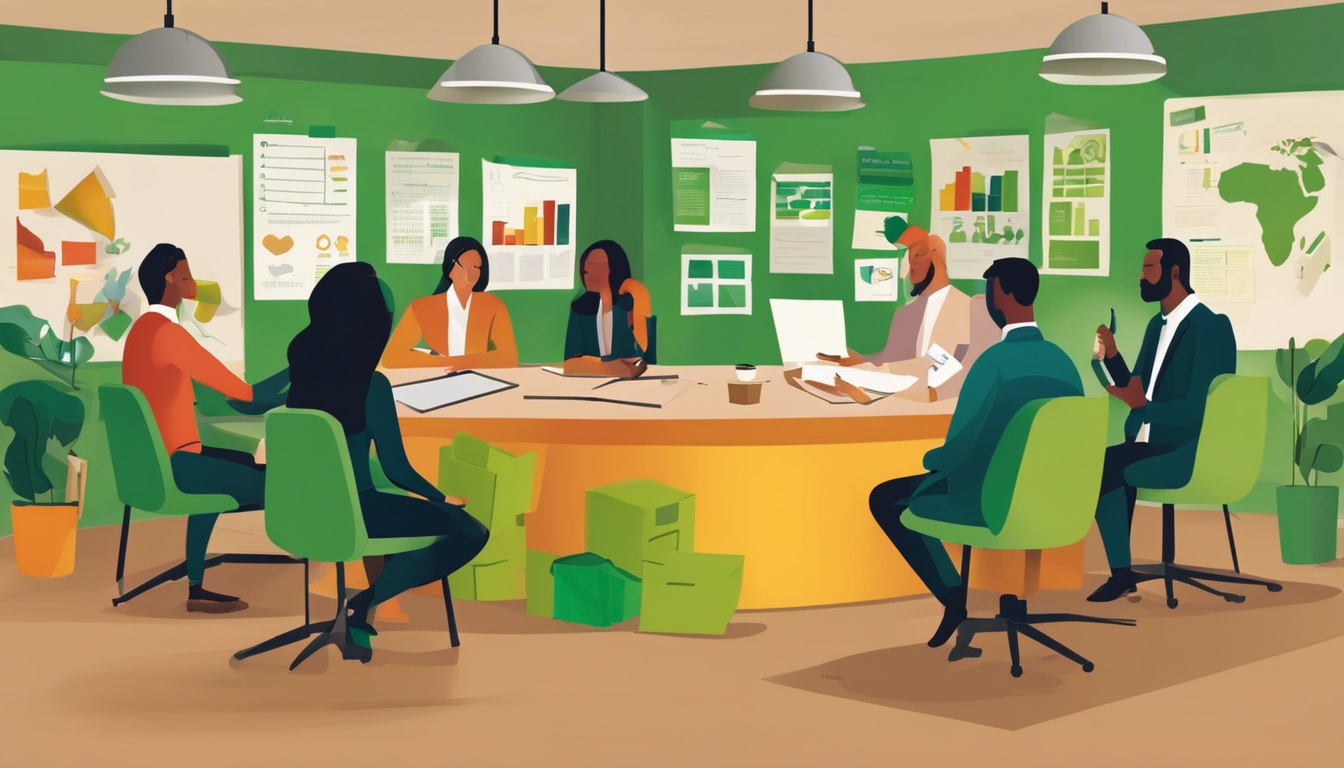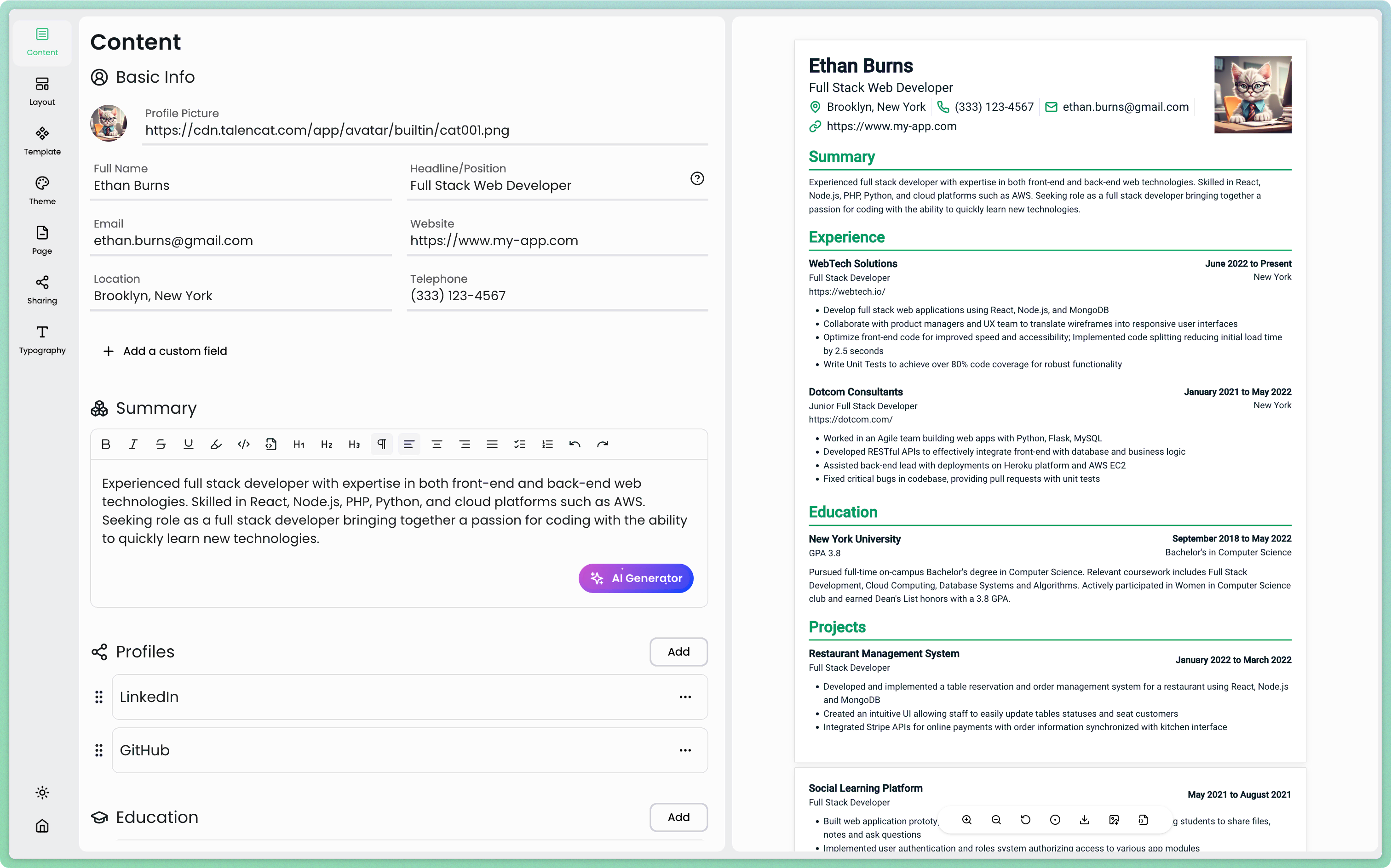Preparing for a waste management interview can be a daunting task, but with the right approach and knowledge, you can confidently showcase your skills and passion for this essential industry. This comprehensive guide will walk you through the various aspects of waste management interviews, providing you with valuable insights, sample questions, and expert tips to help you succeed.
Introduction to Waste Management Interviews
The field of waste management plays a crucial role in maintaining environmental sustainability and public health. As the industry continues to evolve and face new challenges, organizations are seeking skilled professionals who can contribute to efficient and eco-friendly waste management practices. Whether you're a recent graduate or an experienced professional, understanding the interview process is key to landing your desired position in this dynamic sector.
Importance of Preparation for Waste Management Interviews
Thorough preparation is essential for any job interview, but it's particularly crucial in the waste management field. This industry requires a unique blend of technical knowledge, environmental awareness, and practical problem-solving skills. By dedicating time to prepare, you demonstrate your commitment to the role and increase your chances of making a lasting impression on potential employers.
Overview of Common Interview Formats
Waste management interviews typically follow several formats, each designed to assess different aspects of your qualifications and suitability for the role. These may include:
- Phone or video screenings
- One-on-one interviews with hiring managers
- Panel interviews with multiple team members
- Technical assessments
- Behavioral interviews
Understanding these formats will help you tailor your preparation and feel more confident during the actual interview process.
Types of Waste Management Interview Questions
Interviewers in the waste management sector often use a combination of question types to evaluate candidates comprehensively. Let's explore the main categories you're likely to encounter:
General Interview Questions
These questions aim to assess your overall fit for the role and the organization.
Questions about Background and Experience
Expect inquiries about your educational background, previous work experience, and any relevant certifications or training you've completed in the waste management field.
Questions about Motivation and Fit
Interviewers will want to understand your motivation for pursuing a career in waste management and how well you align with the company's values and goals.
Technical Interview Questions
These questions delve into your specific knowledge and expertise in waste management practices.
Knowledge of Waste Management Practices
You may be asked about various waste handling techniques, recycling processes, or disposal methods. Be prepared to discuss current industry trends and best practices.
Sustainability and Environmental Awareness
Expect questions that assess your understanding of environmental regulations, sustainability initiatives, and the broader impact of waste management on the ecosystem.
Behavioral Interview Questions
These questions aim to predict your future performance based on past experiences and behaviors.
Situational Questions
You'll be presented with hypothetical scenarios related to waste management and asked how you would handle them.
Teamwork and Conflict Resolution Questions
Interviewers will want to gauge your ability to work collaboratively and resolve conflicts in a professional setting.
Sample Interview Questions for Waste Management Roles
To help you prepare, here are some common questions you might encounter during a waste management interview, along with expert answers:
General Questions
Why do you want to work in waste management?
Sample Question: "What motivated you to pursue a career in waste management?"
Expert Answer: "I've always been passionate about environmental conservation and sustainable practices. Waste management is at the forefront of these efforts, directly impacting our communities and the planet. I'm excited by the opportunity to contribute to innovative solutions that reduce waste, promote recycling, and minimize environmental impact. The dynamic nature of this field, with its constant technological advancements and evolving regulations, also appeals to my desire for continuous learning and growth."
Describe your experience with waste handling and disposal.
Sample Question: "Can you tell us about your previous experience in waste handling and disposal?"
Expert Answer: "In my previous role at XYZ Recycling Center, I was responsible for overseeing the sorting and processing of various waste streams. This involved managing a team of 15 employees, implementing safety protocols, and ensuring compliance with local and federal regulations. I also spearheaded a project to optimize our recycling process, which resulted in a 20% increase in material recovery rates. Additionally, I've worked closely with local municipalities to develop and implement community recycling programs, which has given me a comprehensive understanding of the challenges and opportunities in waste management at both operational and strategic levels."
Technical Questions
What are the key components of an effective waste management plan?
Sample Question: "In your opinion, what are the essential elements of a successful waste management plan?"
Expert Answer: "An effective waste management plan should encompass several key components. First, it needs a comprehensive waste audit to understand the types and quantities of waste generated. Second, it should include clear goals for waste reduction, recycling, and disposal. Third, the plan must outline specific strategies and technologies for waste collection, sorting, and processing. Fourth, it should incorporate education and outreach programs to engage stakeholders and promote proper waste management practices. Finally, the plan should include monitoring and evaluation mechanisms to track progress and make necessary adjustments. It's also crucial to ensure the plan aligns with relevant regulations and considers the environmental, economic, and social impacts of waste management activities."
How do you stay updated on regulations related to waste management?
Sample Question: "What methods do you use to keep yourself informed about changes in waste management regulations?"
Expert Answer: "Staying current with waste management regulations is crucial in this field. I regularly subscribe to industry publications and newsletters from organizations like the Environmental Protection Agency and the Solid Waste Association of North America. I also attend webinars and conferences focused on waste management and environmental regulations. Additionally, I'm part of several professional networks and online forums where industry professionals share updates and discuss regulatory changes. When significant regulatory updates occur, I make it a point to review the official documents and consult with legal experts if necessary to ensure a thorough understanding of the implications for waste management practices."
Behavioral Questions
Tell me about a time you faced a challenge in a previous job.
Sample Question: "Can you describe a significant challenge you encountered in your previous role and how you addressed it?"
Expert Answer: "In my last position, we faced a sudden equipment failure in our main sorting facility, which threatened to disrupt our entire waste processing operation. I quickly assembled a team to assess the situation and develop a contingency plan. We identified alternative processing methods and negotiated with a nearby facility to temporarily handle some of our waste streams. Simultaneously, I coordinated with our maintenance team and equipment suppliers to expedite repairs. Through effective communication and teamwork, we managed to minimize downtime and maintain our service levels. This experience reinforced the importance of having robust contingency plans and fostering strong relationships within the industry."
Describe a situation where you had to work with a difficult coworker.
Sample Question: "Tell us about a time when you had to collaborate with a challenging colleague. How did you handle the situation?"
Expert Answer: "In a previous project, I was paired with a colleague who had a very different working style and often disagreed with my approaches. Instead of letting this create tension, I initiated a candid conversation to understand their perspective better. We discovered that our differences stemmed from varying priorities – I was focused on efficiency, while they prioritized thoroughness. We agreed to leverage our strengths by dividing tasks accordingly and established clear communication channels. This approach not only improved our working relationship but also led to a more comprehensive and balanced project outcome. The experience taught me the value of embracing diverse viewpoints and finding common ground in professional relationships."

Preparing for Waste Management Interviews
To excel in your waste management interview, thorough preparation is key. Here are some strategies to help you get ready:
Researching the Company
Before your interview, take the time to research the company thoroughly. Visit their website, read their annual reports, and look for recent news articles or press releases. Pay attention to:
- The company's mission and values
- Their specific waste management services or focus areas
- Recent projects or initiatives they've undertaken
- Any awards or recognition they've received in the industry
This knowledge will help you tailor your responses and demonstrate genuine interest in the organization.
Understanding Industry Trends and Regulations
The waste management industry is constantly evolving, driven by technological advancements, environmental concerns, and changing regulations. Stay informed about:
- Emerging technologies in waste processing and recycling
- Circular economy principles and their application in waste management
- Current and upcoming environmental regulations affecting the industry
- Global trends in sustainable waste management practices
Being well-versed in these areas will showcase your commitment to the field and your potential value to the company.
Practicing Common Interview Questions
While you can't predict every question you'll be asked, practicing common interview questions can help you feel more confident and articulate during the actual interview. Consider these tips:
- Use the STAR method (Situation, Task, Action, Result) to structure your responses to behavioral questions
- Practice explaining technical concepts in simple terms, as you may need to do this in your role
- Prepare specific examples from your past experiences that demonstrate your skills and problem-solving abilities
- Ask a friend or family member to conduct a mock interview with you
Remember, the goal is not to memorize answers but to become comfortable discussing your experiences and knowledge fluently.
TalenCat: Master Waste Management Interview Questions
Preparing for a waste management interview can be challenging, but with TalenCat CV Maker, you can streamline your preparation process and gain valuable insights into potential interview questions. This online resume builder offers a powerful "Interview Assistant" feature that analyzes your resume and generates tailored interview questions for your waste management career.
Here's how to use TalenCat CV Maker to prepare for your waste management interview:
Step 1: Log in to TalenCat CV Maker and create or upload your waste management resume.
Step 2: Navigate to the "AI Assistant" section and select "Interview Assistant" from the left-side menu.

Step 3: Click "Analyze Now" to let TalenCat's AI analyze your resume and generate potential interview questions specific to waste management.

Step 4: Review the generated questions and prepare your responses. These questions will be tailored to your experience in waste management, including topics like recycling programs, landfill management, and environmental regulations.
Step 5: Use the TalenCat CV Maker's editor to refine your resume based on the interview questions, ensuring your experience aligns with potential employer expectations.

By leveraging TalenCat CV Maker's Interview Assistant, you'll be well-prepared to tackle even the most challenging waste management interview questions. This AI-powered tool gives you a competitive edge by allowing you to anticipate and prepare for questions specific to your experience and the waste management industry.
Remember, thorough preparation is key to acing your interview. With TalenCat CV Maker, you're not just creating a resume; you're equipping yourself with the tools to succeed in your waste management career.
Resources for Further Preparation
Online Platforms for Sample Questions
Mock Questions and Answers
Several online platforms provide valuable resources for waste management interview preparation. Websites like Indeed, LinkedIn, and Monster feature extensive databases of industry-specific questions. These platforms often include real interview experiences and recommended answers from professionals in the field. Additionally, professional associations like the Solid Waste Association of North America (SWANA) offer member resources that include interview preparation materials.
Glassdoor Reviews and Insights
Glassdoor is an invaluable resource for candidates preparing for waste management interviews. The platform offers:
- Actual interview questions from specific companies
- Salary information and negotiation insights
- Company culture reviews from current and former employees
- Interview difficulty ratings and experiences
- Tips from successful candidates who secured positions
Books and Guides on Waste Management Careers
Several publications can enhance your knowledge and interview preparation:
- "Careers in Waste Management" by Institute For Career Research - Provides comprehensive industry overview and career paths
- "The Zero Waste Solution: Untrashing the Planet One Community at a Time" by Paul Connett - Offers insights into modern waste management approaches
- "Handbook of Solid Waste Management" by George Tchobanoglous - Technical reference for industry professionals
- "Green Careers in Waste Management" by Peterson's - Career guidance specific to environmental services
- "Environmental and Waste Management" by Nicholas P. Cheremisinoff - Technical knowledge and industry practices
Conclusion
Recap of Key Points
Success in waste management interviews requires:
- Utilizing online resources and platforms for comprehensive preparation
- Studying industry-specific books and guides to deepen knowledge
- Learning from others' experiences through review platforms
- Understanding both technical aspects and soft skills required for the role
- Staying updated with current industry trends and best practices
- Developing a strong foundation in environmental regulations and compliance
Encouragement to Prepare Diligently
Remember that thorough preparation is the key to interview success. Take advantage of all available resources to build your knowledge and confidence. Focus on:
- Regular study and review of industry materials
- Practice interviews with professionals or mentors
- Staying current with industry news and developments
- Building a network within the waste management community
- Developing clear examples of your experience and achievements
- Maintaining a positive and professional attitude
Your dedication to preparation will show during the interview and demonstrate your commitment to excellence in waste management. With consistent effort and the right resources, you'll be well-equipped to showcase your expertise and secure your desired position in this growing industry.




